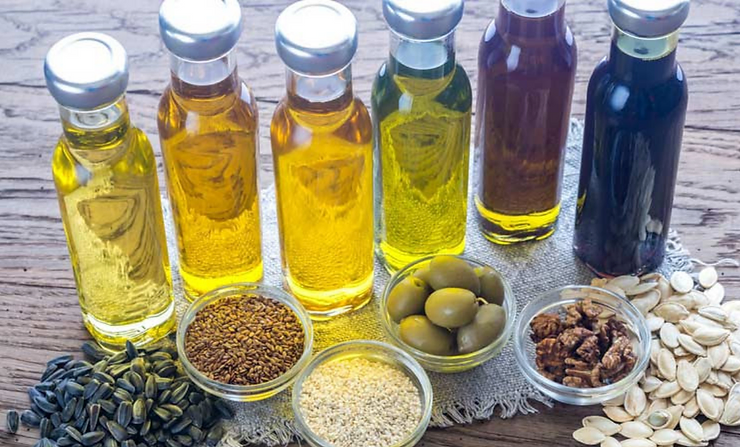Large Study Finds: Vegetable Fat May Decrease Stroke Risk & Animal Fat Increase Stroke Risk!
Large study shows which types of fat and dietary sources lower risk of Stroke

Stroke is one of the leading causes of disability, and adherence to a healthy diet can reduce the risk of stroke.
The relationship between different types and sources of fat and the risk of stroke is less well-understood.
A large longitudinal study showed that the intake of vegetable fat, polyunsaturated fat, and vegetable oil had associations with lower stroke risk.

Participants consuming higher levels of non-dairy animal fat, red meat, and processed red meat were at increased risk of stroke.
Fat in our diets has long been linked to stroke risk, but new research presented at the American Heart Association’s Scientific Sessions suggests that it’s the type of fat, not the amount, that may be the most important factor. The study found that eating more animal fat was linked to a higher risk of stroke, while getting more fat from vegetable sources was linked to a lower risk. The results come from 27 years of data from more than 117,000 health care professionals.

The data was pulled from The Nurses’ Health Study and The Health Professionals Follow-Up Study.
Stroke is the fifth leading cause of death in the United States, according to the Center for Disease Control and Prevention (CDC).
Although there has been a decline in the mortality rate due to stroke in the past 4 decades, it remains a leading cause of long-term physical disability and lasting brain damage. This highlights the importance of stroke prevention.
Leading a healthy lifestyle can significantly reduce the risk of heart disease and stroke. For instance, an older study suggests that maintaining an overall healthy lifestyle can reduce the risk of stroke by 80%.
The study considered lifestyle factors, such as adhering to a healthy diet, doing physical exercise, not smoking, moderate alcohol consumption, and maintaining an optimal weight.
Although a healthy diet is a vital component of prevention strategies for stroke and other cardiovascular diseases, only 22% of individuals in the U.S. follow the American Heart Association’s (AHA) recommendations for a healthy diet.
Dietary advice for reducing the risk of stroke generally includes consuming a high fiber diet rich in vegetables, fruits, nuts, legumes, whole grains, poultry, and fish, while restricting the intake of carbohydrates, salt, and red meat. For a considerable period, advice for stroke prevention also included reducing the consumption of fats.
Multiple studies investigating the association between the intake of different fat types, such as polyunsaturated and saturated fat, and the risk of stroke have yielded inconsistent results. Moreover, few studies have examined how fat from different food sources, such as dairy, meat, etc., is associated with an increased risk of stroke.
A group of researchers at the Harvard T.H. Chan School of Public Health recently investigated the association between different fat types and sources and the risk of stroke.
The study’s author, Dr. Fenglei Wang, a post-doctoral researcher at Harvard University, MA, told Medical News:
“We found that higher intake of vegetable fat and polyunsaturated fat was associated with lower stroke risk, while higher intake of non-dairy animal fat was associated with higher stroke risk. Our findings indicate the importance of considering the fat sources when examining the association between fat intake and stroke risk.”
To learn more read the following article: THE PH MIRACLE FOR HEART DISEASE – DISCOVER THE TRUTH ABOUT HEART DISEASE, CONGESTIVE HEART FAILURE, ATHEROSCLEROSIS, CHOLESTEROL, HYPERTENSION, STROKE AND MORE!

References:
Wang F, Baden MY, Rexrode KM, Hu FB. RF160 – Dietary Fat Intake and the Risk of Stroke: Results from Two Prospective Cohort Studies. Abstract presented at: American Heart Association’s Scientific Sessions 2021; November 13-15, 2021; virtual meeting.
https://phoreveryoung.wordpress.com/2015/03/04/the-solidification-of-metabolic-and-dietary-acids-that-lead-to-gout-arthritis-fibromyalgia-osteoporosis-and-cancer/



